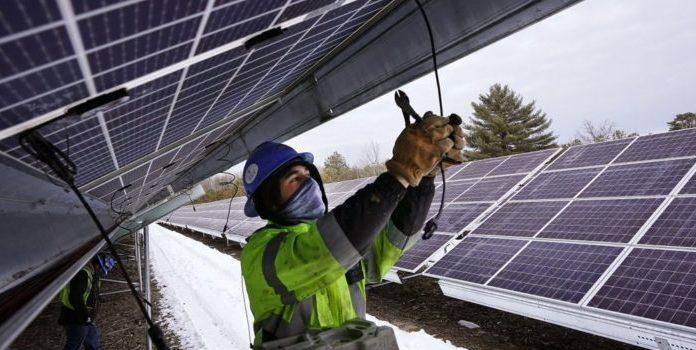(Joshua Paladino, Headline USA) As renewable energy prices soar and investments flatline, the CEO of Rivian, an electric vehicle company, said that the supply chain for battery cell production virtually “does not exist,” the Daily Caller reported.
Rivian CEO RJ Scaringe said President Joe Biden has demanded that automakers sell at least 50% electric vehicles by 2030 and that the federal government have a fully electric fleet by 2035.
“Put very simply, all the world’s cell production combined represents well under 10% of what we will need in 10 years,” he told the Wall Street Journal in April. “Meaning, 90% to 95% of the supply chain does not exist.”
The green-energy market has collapsed during the past two years with total investments in new projects falling more than 80 percent, from $46.2 billion in 2019 to $7.5 billion in 2021.
As investment declines, renewable energy prices have jumped an “astounding” 25.8 percent from 2021 to 2022, according to an April 13 report from LevelTen Energy.
Power the Future Executive Director Daniel Turner said that green energy prices fluctutate so much because federal and state governments fund projects that the free market could not sustain.
“One of the problems with this industry as a whole is that, since at its very foundation it is based on government subsidies and government mandates, its market value is never truly known,” Daniel Turner told the Daily Caller News Foundation.
The government’s subsidies are part of a Western plan, which includes the United States, the European Union, and the United Nations, to reach net-zero carbon emissions by 2050.
Globalist leaders, including Biden, often remark that achieving net-zero carbon emissions will pay for itself, but Turner said no one knows the true cost.
Currently, renewable energy companies, whether in wind, solar, or electric, cannot make a profit without government subsidies.
JinkoSolar, a Chinese solar panel manufacturer, saw its profits decline by 41.7 percent in the past year despite a 34.5 percent increase in sales.
“It’s a big lie when the environmentalists say, ‘it’s cheap’ — we don’t know what it actually costs,” Turner said. “It may be, I’m not denying it could be, but the fact is we don’t actually know what wind and solar cost.”

